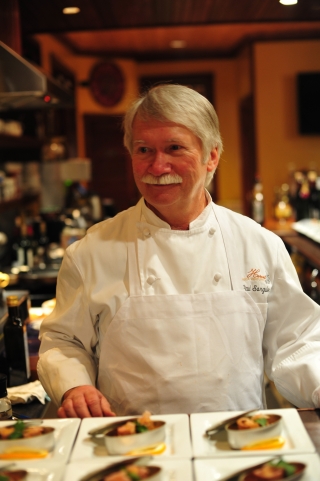
Putting 2020 to Bed
04 December 2020Learning from experiences in 2020 will help us prepare and plan for the future.
By Paul Sorgule, MS, AAC
Well, this has certainly been an interesting year; a year to either forget or take to heart. The foodservice industry and subsequently our programs have been flipped upside down putting all of us on edge as we wonder what comes next. So, in that vein let’s take a look at what we have learned over the past 10 months and how we might benefit from that experience.
We are resilient
We all know that before the pandemic, if our institutions suggested programs be converted to an online or hybrid format we would have spent months or longer in meetings, committees, conducting surveys and arguing the validity of online vs. person-to-person delivery until the decision was finally tabled for further critique. Instead, most programs had days or weeks to change direction and adapt. We might not have enjoyed it, but we did it!
Our students are resilient
As challenging as it was for faculty and administrators to embrace the leap of change – think about our students. Without any time for transition, without any training on “how to,” they also flipped from sometimes one-on-one, and the dynamics of team learning, to sitting in front of a computer screen and learning how to self-discipline. Some have not been as successful or taken more time to get used to this transition, but others were able to adopt and change quickly.
Necessity is the mother of invention
Chefs can sometimes be stubborn individuals who live for the comfort of routine and embrace the systems to which they are accustomed. The thought of planning for online delivery would typically be met with great skepticism and either subtle or blatant resistance. This stubbornness had no home in a world that was faced with the ugly head of a pandemic beast. When push came to shove these same resistant chefs found a way to rise to the occasion and came up with innovative ways of making online feel less threatening. Ironically, this is exactly what each chef instructor did when he or she was at the helm of a kitchen. Chefs have always been problem solvers when faced with adversity.
Problems reveal opportunities
Suddenly, everyone started to look at ways of conducting business that have never been part of the conversation before. When we faced those challenges with an open-mind, then bright opportunities were revealed. This will change our approach moving forward.
Nothing will ever be as it was
A month or two into this new direction we all became aware that a return to “normal” would never be part of the formula again. Acceptance is the first step in new beginnings and a chance to reinvent and improve.
Change is inevitable – take control of it
Change is a scary word that is human nature to resist. Change requires that we shake up our approach toward everything and accept a new logic and fresh ideas. It means that we must discard what makes us comfortable and dip our toes in a cold, rushing stream that will move us to a different outcome. We are beginning to learn how to navigate that stream.
What was once habit is now a vice
We started to see what self-imposed roadblocks got in our way in the past. We became comfortable with our methods even when we inherently knew that they were flawed and after time they simply became accepted as the way to do things. Now we see the problems these vices and habits created.
Over the past 10 months we have discovered these bad habits and have come to learn (with some resistance) that with time, effort, and discipline – these habits can be changed and changed for the better.
So, as we approach a new year it would be wise to take what we have learned and package the energy of knowledge and experience to establish a new path. We should prepare ourselves to reevaluate everything, take on a somewhat different role in supporting the food industry that our efforts serve, define the attributes of an ideal graduate post pandemic, set aside resistance and become agents of positive change, and get excited about the opportunities. We have a way to go before life feels comfortable again, but what better time to plan ahead then right now?
PLAN BETTER – TRAIN HARDER
Paul Sorgule, MS, AAC, president of Harvest America Ventures, a mobile restaurant incubator based in Saranac Lake, N.Y., is the former vice president of New England Culinary Institute and a former dean at Paul Smith’s College. Contact him at This email address is being protected from spambots. You need JavaScript enabled to view it..
